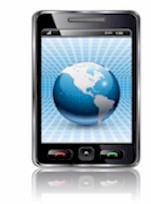|
|
DSC Tech Library
 This section of our technical library presents information and documentation relating to Call Center technology and Best Practices plus software and products.
Since the Company's inception in 1978, DSC has specialized in the development of communications software and systems. Beginning with our CRM and call center applications, DSC has developed computer telephony integration software and PC based phone systems. These products have been developed to run on a wide variety of telecom computer systems and environments.
This section of our technical library presents information and documentation relating to Call Center technology and Best Practices plus software and products.
Since the Company's inception in 1978, DSC has specialized in the development of communications software and systems. Beginning with our CRM and call center applications, DSC has developed computer telephony integration software and PC based phone systems. These products have been developed to run on a wide variety of telecom computer systems and environments.
The following article presents product or service information relating to call centers and customer service help desks.
Prison Call Centers Put Squeeze on Service Sector
by Laura Sullivan
NPR
NPR.org, February 23, 2005· A generation ago, prisoners just made license plates. Later, inmates began making shoes, clothing, furniture -- even soap.
But now prisons are going farther. Several years ago, the federal prison system started offering customer-service calling centers. Inmates sit in a small, guarded room taking orders for goods and products and handling shipping questions. A few states have followed suit and opened their own call centers.
Most of the centers handle orders for items the prisoners are making themselves and deal almost exclusively with the non-profits and government agencies that are allowed to buy their goods. But in a few cases, prisons have offered their call centers' services to private companies on the outside who want to outsource their own departments. The companies say they would have sent the centers overseas if they hadn't given the business to the prisons.
The move has not been without controversy. The federal prisons' efforts to expand into calling centers through its company, Federal Prison Industries, has caught the eye of the U.S. Chamber of Commerce, which receives calls weekly about the issue.
"We do not believe Federal Prison Industries should continue its unfettered expansion into the commercial marketplace," says Tim Maney, director of legislative affairs for the Chamber of Commerce. "The business community is extremely concerned with this."
Maney says there are still a number of companies outside of prisons in the United States that offer customer-service calling centers, and they have been hurt by the competition.
Federal Prison Industries and its government owner, the Bureau of Prisons, declined to comment for this article. But bureau officials have said that they're not breaking any laws.
In the 1930s, Congress began allowing the bureau of prisons to put prisoners to work making products -- part of an effort to rehabilitate them. But there was a catch. Because its labor costs are so cheap -- prisoners make less than a dollar an hour -- Federal Prison Industries was not allowed to sell products to anyone but government agencies and non-profits.
In testimony before Congress last year, Bureau of Prisons Director Harley Lappin argued that call centers are a service, not a product, and are therefore not covered by the 1930s law. According to Lappin, that logic also applies to the bureau's new recycling centers, printing facilities and industrial laundry rooms. Lappin said these services can be offered to any company in the private sector.
Federal Prison Industries advertises its call centers as "Domestic outsourcing at offshore prices."
Any call to a Federal Prison Industries customer-support number will get a "customer service representative" on the other end of the line, ready with the customary chipper voice most people expect to hear when placing an order. Unless you ask, you'd never know these representatives are prisoners at the U.S. Penitentiary in Leavenworth, Kan. Inmates are not allowed to speak with reporters, but all seemed eager to chat.
Labor unions and some states say they believe it's too much of a security risk to have prisoners talking to the outside world, even if they're being monitored. Private businesses say it's also a security risk to have prisoners taking down customers' credit card information.
But prison officials say only the best inmates with the lowest security risks are granted such premium jobs.
One such prisoner was Alfreda Robinson. She served 10 years in federal prison for drug conspiracy. Now she works in a corporate office in Baltimore. She didn't like working for Federal Prison Industries, but she says working in the call center gave her a small sense of fulfillment.
"[The calls] would come in from all over the United States," she says. "So if you could luck up on someone who was close to California, or at least it would feel like some familiarity, you'd try to have a conversation of how it's like out there. We were just trying to hear how the civilized world is these days."
Robinson says she liked hearing a friendly voice that didn't know she was a prisoner.
"You always get crazy calls and you always get an opportunity to be a little crazy, and that kind of goes against the norm of what you'd see every day," she says. "It gives you a little dose of humanity in a place that's kind of void of it."
CRM Call Center Software
 Database Systems Corp. (DSC) has been providing CRM Customer Relationship Management solutions to businesses and organizations for 2 decades.
TELEMATION is a Customer Relationship Management (CRM) application employed in a wide variety of organizations including contact centers, help desks, customer service centers, service bureaus, reservation centers and corporate call centers. The package has extensive CTI features and is fully integrated with our PACER phone system. TELEMATION operates on Linux, Unix or Windows servers. Software programmers can develop call center applications quickly using the robost features found in the Telemation toolkit.
Database Systems Corp. (DSC) has been providing CRM Customer Relationship Management solutions to businesses and organizations for 2 decades.
TELEMATION is a Customer Relationship Management (CRM) application employed in a wide variety of organizations including contact centers, help desks, customer service centers, service bureaus, reservation centers and corporate call centers. The package has extensive CTI features and is fully integrated with our PACER phone system. TELEMATION operates on Linux, Unix or Windows servers. Software programmers can develop call center applications quickly using the robost features found in the Telemation toolkit.
Call Center Phone System
 The PACER is a call center phone system that handles inbound and outbound calls for a wide range of contact centers. Calls are either initiated by the phone system or accepted from the outside and distributed in an intelligent fashion to your service agents. The PACER includes ACD and IVR components, plus call recording capability. Using industry standard components, the PACER phone system has features and functions that can only be found in large scale PBX’s, but at a fraction of the cost. And the PACER has predictive dialing capability that cannot be found in most of these larger phone systems. The PACER phone system can connect calls to your employees working at home or in a local or remote office. The PACER communicates with applications written on Unix, Linux, or PC servers over a LAN. For a complete product presentation, download our PACER demo.
The PACER is a call center phone system that handles inbound and outbound calls for a wide range of contact centers. Calls are either initiated by the phone system or accepted from the outside and distributed in an intelligent fashion to your service agents. The PACER includes ACD and IVR components, plus call recording capability. Using industry standard components, the PACER phone system has features and functions that can only be found in large scale PBX’s, but at a fraction of the cost. And the PACER has predictive dialing capability that cannot be found in most of these larger phone systems. The PACER phone system can connect calls to your employees working at home or in a local or remote office. The PACER communicates with applications written on Unix, Linux, or PC servers over a LAN. For a complete product presentation, download our PACER demo.
|


 This section of our technical library presents information and documentation relating to Call Center technology and Best Practices plus software and products.
Since the Company's inception in 1978, DSC has specialized in the development of communications software and systems. Beginning with our CRM and call center applications, DSC has developed computer telephony integration software and PC based phone systems. These products have been developed to run on a wide variety of telecom computer systems and environments.
This section of our technical library presents information and documentation relating to Call Center technology and Best Practices plus software and products.
Since the Company's inception in 1978, DSC has specialized in the development of communications software and systems. Beginning with our CRM and call center applications, DSC has developed computer telephony integration software and PC based phone systems. These products have been developed to run on a wide variety of telecom computer systems and environments.
 Database Systems Corp. (DSC) has been providing CRM Customer Relationship Management solutions to businesses and organizations for 2 decades.
TELEMATION is a Customer Relationship Management (CRM) application employed in a wide variety of organizations including contact centers, help desks, customer service centers, service bureaus, reservation centers and corporate call centers. The package has extensive CTI features and is fully integrated with our PACER phone system. TELEMATION operates on Linux, Unix or Windows servers. Software programmers can develop call center applications quickly using the robost features found in the Telemation toolkit.
Database Systems Corp. (DSC) has been providing CRM Customer Relationship Management solutions to businesses and organizations for 2 decades.
TELEMATION is a Customer Relationship Management (CRM) application employed in a wide variety of organizations including contact centers, help desks, customer service centers, service bureaus, reservation centers and corporate call centers. The package has extensive CTI features and is fully integrated with our PACER phone system. TELEMATION operates on Linux, Unix or Windows servers. Software programmers can develop call center applications quickly using the robost features found in the Telemation toolkit.
 The PACER is a call center phone system that handles inbound and outbound calls for a wide range of contact centers. Calls are either initiated by the phone system or accepted from the outside and distributed in an intelligent fashion to your service agents. The PACER includes ACD and IVR components, plus call recording capability. Using industry standard components, the PACER phone system has features and functions that can only be found in large scale PBX’s, but at a fraction of the cost. And the PACER has predictive dialing capability that cannot be found in most of these larger phone systems. The PACER phone system can connect calls to your employees working at home or in a local or remote office. The PACER communicates with applications written on Unix, Linux, or PC servers over a LAN. For a complete product presentation, download our PACER demo.
The PACER is a call center phone system that handles inbound and outbound calls for a wide range of contact centers. Calls are either initiated by the phone system or accepted from the outside and distributed in an intelligent fashion to your service agents. The PACER includes ACD and IVR components, plus call recording capability. Using industry standard components, the PACER phone system has features and functions that can only be found in large scale PBX’s, but at a fraction of the cost. And the PACER has predictive dialing capability that cannot be found in most of these larger phone systems. The PACER phone system can connect calls to your employees working at home or in a local or remote office. The PACER communicates with applications written on Unix, Linux, or PC servers over a LAN. For a complete product presentation, download our PACER demo.